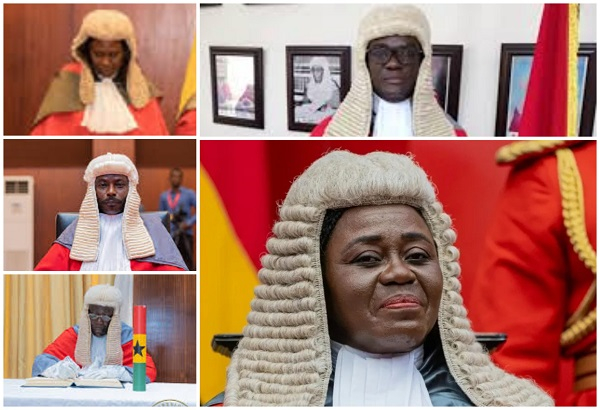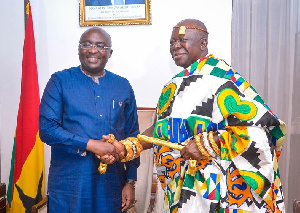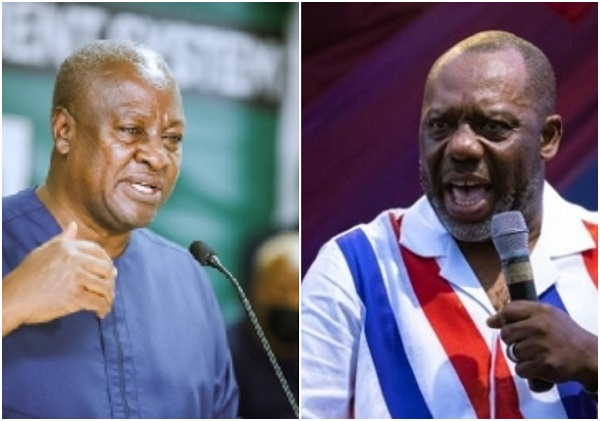5-2 vs 5-0: Kwaku Azar breaks down Supreme Court judgement overturning Speaker Bagbin’s vacancy declaration

US-based Ghanaian lawyer, Professor Stephen Kwaku Asare, has reacted to the judgement of the Supreme Court of Ghana on Tuesday, November 12, 2024, which overturned the declaration of four seats in the House as vacant by the Speaker of Parliament, Alban Bagbin.
In a statement shared on Facebook on Tuesday, Professor Kwaku Asare, widely known as Kwaku Azar, indicated that there might be more to the Court’s ruling than is being reported.
He indicated that reports of the Court’s justices affirming a challenge to the ruling by a 5-2 majority decision may not be a full reflection of the Court’s judgement.
“The Court’s judgment is not out. I have read that it’s a 5-2 decision. I won’t be surprised if this turns out to be only partly right. This is because a judge who rules that there is no jurisdiction typically does not cast a vote on the substantive matter.
“If this thinking prevails, then what we are likely going to have is a 5-2, 5-0 decision. That is, 5-2 on jurisdiction and 5-0 on the substantive matter,” he wrote.
The academic went on to explain the logic behind the ruling of the justices of the apex court of the land, which reversed Speaker Bagbin’s declaration.
He indicated that the ruling means that the provisions of Article 97 of the 1992 Constitution, which was at the heart of the Speaker’s declaration, do not apply when Members of Parliament (MPs) change their political affiliations to contest in an election for a future Parliament.
The legal luminary added that Article 97 would have properly applied when the MPs whose seats were declared vacant changed their affiliations to be MPs in the same Parliament on the tickets of other parties.
“Second, I’ve read some pundits raise questions about how an MP’s seat could be vacated in a future Parliament. Based on this, they have questioned the Court’s decision. Let us be careful. Nobody has said that a seat will be vacated in a future parliament. The future parliament angle is a red herring.”
He then illustrated the reasoning of the Court as follows:
“What the Court might say, based on a holistic reading of Article 97(1)(g) and (h) is:
1. An MP shall vacate his seat
2. If he switches sides
3. And seeks to remain in Parliament in that new status.
In other words, MPs can’t change the general election verdict by switching sides.
Illustrations:
1. Parliament is 50-50. X, a member of the Blue party, switches to the Green Party and seeks to remain in Parliament so that Parliament is now 49-51. No! X is not allowed to do that and he must vacate his seat. If he is a partisan MP, he’s caught by Article 97(1)(g). If he’s an independent, he’s caught by Article 97(1)(h).
2. Parliament is 50-50. X, a member of the Blue party, files his nomination on the ticket of the Green Party and seeks to enter the next Parliament in that Green colour. Parliament is still 50-50. Yes. X is allowed to do that and he need not vacate his seat. Article 97 does not care about what one plans to do in a future parliament!!
A test that will not fail you is whether the MP’s action has changed the election verdict (in this example the 50-50). If no, Article 97(1)(g) & (h) are not triggered.
The bottom line is everyone, including an incumbent MP, is free to contest on any platform in a future election.
MPs are not mandated to run on the same ticket in the future and are not required to vacate their seats merely because they want to enter a new parliament in a new jersey.
To hold otherwise, will be to say once voters elect an MP, they also shrink the option set available to the MP-elect in the next Parliament.
That will be the worst thing to do in a democracy.”
About the Supreme Courts ruling:
On Tuesday, the Supreme Court of Ghana overturned Speaker Alban Bagbin’s declaration of four vacant seats in the House.
The Court’s judgment followed an application by the Member of Parliament (MP) for Effutu, Alexander Kwamina Afenyo-Markin, who challenged the Speaker’s declaration.
Through his lawyers, the MP, who now retains his position as Majority Leader, sought a proper interpretation of the provisions of the Constitution on which the Speaker based his declaration. Article 97 states that “A Member of Parliament shall vacate his seat in Parliament – (g) if he leaves the party of which he was a member at the time of his election to Parliament to join another party or seeks to remain in Parliament as an independent member…. (h) if he was elected a Member of Parliament as an independent candidate and joins a political party.”
Afenyo-Markin requested that the Court declare the Speaker’s interpretation of Article 97 (g) and (h) incorrect and, consequently, reverse the Speaker’s declaration of the seats of Andrew Amoako Asiamah (Fomena), Cynthia Mamle Morrison (Agona West), Kwadwo Asante (Suhum), and Peter Yaw Kwakye-Ackah (Amenfi Central) as vacant.
The Chief Justice, announcing the Court’s decision, stated that a 5-2 majority upheld the application of the Majority Leader.
She noted that two of the justices opposed the application on the grounds of jurisdiction.
The justices who supported the application include Chief Justice Gertrude Torkornoo, Justice Mariam Owusu, Justice Samuel Kwame Adibu-Asiedu, Justice Ernest Yao Gaewu, and Justice Yaw Darko Asare.
Justice Avril Lovelace Johnson and Justice Issifu Omoro Tanko Amadu are the two who dissented.
Source: www.ghanaweb.com





